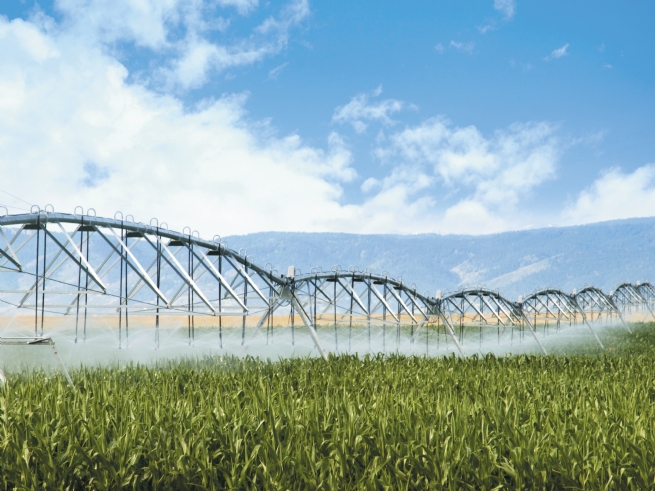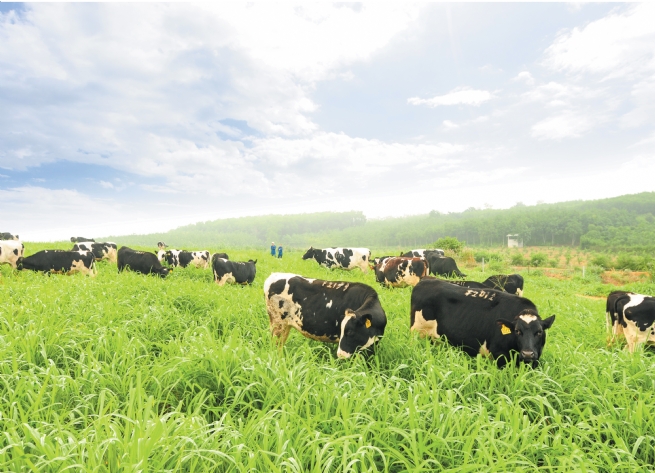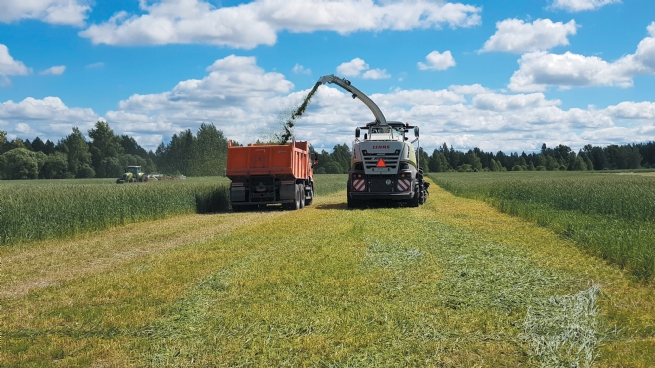9:54:37 AM | 8/23/2024
The 5th Industrial Revolution offers a great opportunity for agriculture by integrating advanced science and technology with investments from producers, enterprises and the State. This will boost skills and adaptability, and create multi-value products, enhancing competitiveness in the sector.

Industry 5.0 presents a great opportunity for advancing agricultural development
Still fragmented and small-scale
According to the General Statistics Office, between 2010 and 2022, the revenue per hectare for agricultural production increased 1.95 times, while for aquaculture, it rose 2.45 times. Despite these gains, Vietnam's agricultural sector remains predominantly characterized by approximately 10 million small-scale farming households and several million agricultural business households. These enterprises face challenges such as fragmented land holdings, limited capital, and insufficient technical expertise, which hinder their ability to adopt high technology. Currently, only 1-2% of Vietnamese enterprises are engaged in agriculture, forestry, and fishery, with around 50 recognized as "high-tech agricultural enterprises" and about 300 applying high technology—representing less than 3% of the total agricultural enterprise base. These enterprises are striving to meet market technical standards. With limited capital, shrinking land resources, and rising labor costs, they have managed to increase production value and export volumes, thereby maintaining the competitiveness of Vietnamese agricultural products.
According to Dang Kim Son, Permanent Vice Chairman of the Association of Advanced Technology Enterprise in Agriculture (ATEA), Vietnam boasts several agricultural enterprises leveraging high technology to enhance production efficiency and competitiveness. Notable examples include TH True Milk, Loc Troi Group, Thanh Thanh Cong Group, Vinaseed Corporation, Thai Binh Seed, Nafoods, Dong Giao Foodstuff Export Joint Stock Company, Dabaco Group, MyLan and Vinamit. Additionally, many small and medium-sized enterprises, such as Hue Tronic and Bien Dong Trading and Investment Company, are actively pursuing effective technology solutions. The innovative spirit and determination of Vietnamese enterprises are important to advance applied research and technology transfer, significantly contributing to the growth and development of Vietnamese agriculture.
Mr. Ha Van Thang, Chairman of Vietnam Council of Agricultural Companies (VCAC), said that to achieve smart agriculture, it is important to develop smart human resources. Currently, the agricultural workforce in Vietnam, including farmers, predominantly relies on traditional methods. The integration of new scientific and technological advancements in agricultural production remains limited, and there are few models of close and sustainable collaboration within the sector. Establishing strong linkages between agricultural enterprises and scientific and technological entities is essential. Such collaboration will enhance collective capabilities, mobilize resources, and lay the groundwork for advancing green, circular, and sustainable agriculture. This process involves not only implementing new technologies but also incorporating feedback and making continuous adjustments to refine and enhance the agricultural ecosystem, ensuring its alignment with green, circular, and sustainable principles.
"Linkage and close cooperation between agricultural enterprises and scientific and technological organizations should be institutionalized as a framework for investment, production, and business collaboration in the agricultural sector. This cooperation transforms the traditional, isolated operating model into an integrated approach that leverages science, technology, and innovation as its core foundation. By applying scientific and technological advances across all agricultural production and business activities, this model maximizes the use of raw materials, efficiently manages waste and by-products, and recycles these into valuable products. This creates a circular production mechanism, thereby supporting the successful achievement of sustainable development goals," Mr. Ha Van Thang shared.


Agribusinesses face challenges like fragmented land, limited capital, and lack of technical expertise, hindering their adoption of advanced technologies
Strengthening links to apply science and technology to production
To ensure that science, technology and innovation effectively underpin smart agriculture and sustainable development, Mr. Ha Van Thang emphasized the need for a focused approach. This approach should center on integrating scientific organizations and agricultural enterprises in investment and development activities. The goal is to establish a leading model within the ecosystem comprising the four key stakeholders: the State, Scientists, Enterprises and Farmers.
The State must swiftly finalize legal regulations to support positive and open policies for cooperation and investment in agriculture across both public and private sectors. It is important to clarify the autonomy of state-owned but independently operated scientific organizations and enterprises. Additionally, the State should implement regulations to establish a legal framework for new economic models, including the green and circular economies.
Development cooperation and innovation models should be allowed to operate under flexible, open mechanisms rather than outdated regulations. Testing and piloting new approaches should be encouraged, with defined periods for evaluation. The results will guide regulatory improvements to better support and manage these innovations.
Mr. Dang Kim Son stressed the need to rapidly innovate and streamline research institutes and universities by better integrating research with training and motivating scientific staff to prioritize impactful innovation. Additionally, he highlighted the importance of revamping the agricultural extension and technology consulting systems.
There is a pressing need to reform the training of technical staff to build a highly skilled workforce that supports all facets of agricultural production and business. This requires developing advanced training programs and overhauling the establishment and management of high-tech agricultural zones and innovative industry clusters.
Mr. Dang Kim Son said that Vietnam’s 40-year economic reform experience highlights the need for institutional innovation. With limited state resources, focusing on decentralization and delegating authority is crucial to harness the full potential of all economic sectors. Attracting domestic and foreign investment through market mechanisms is essential. The main challenge is not just technological solutions but establishing institutional frameworks and policies. By creating a supportive environment and encouraging the adoption of high technology by leading enterprises, Vietnam can foster a strong and sustainable development agricultural sector.
By Anh Mai, Vietnam Business Forum